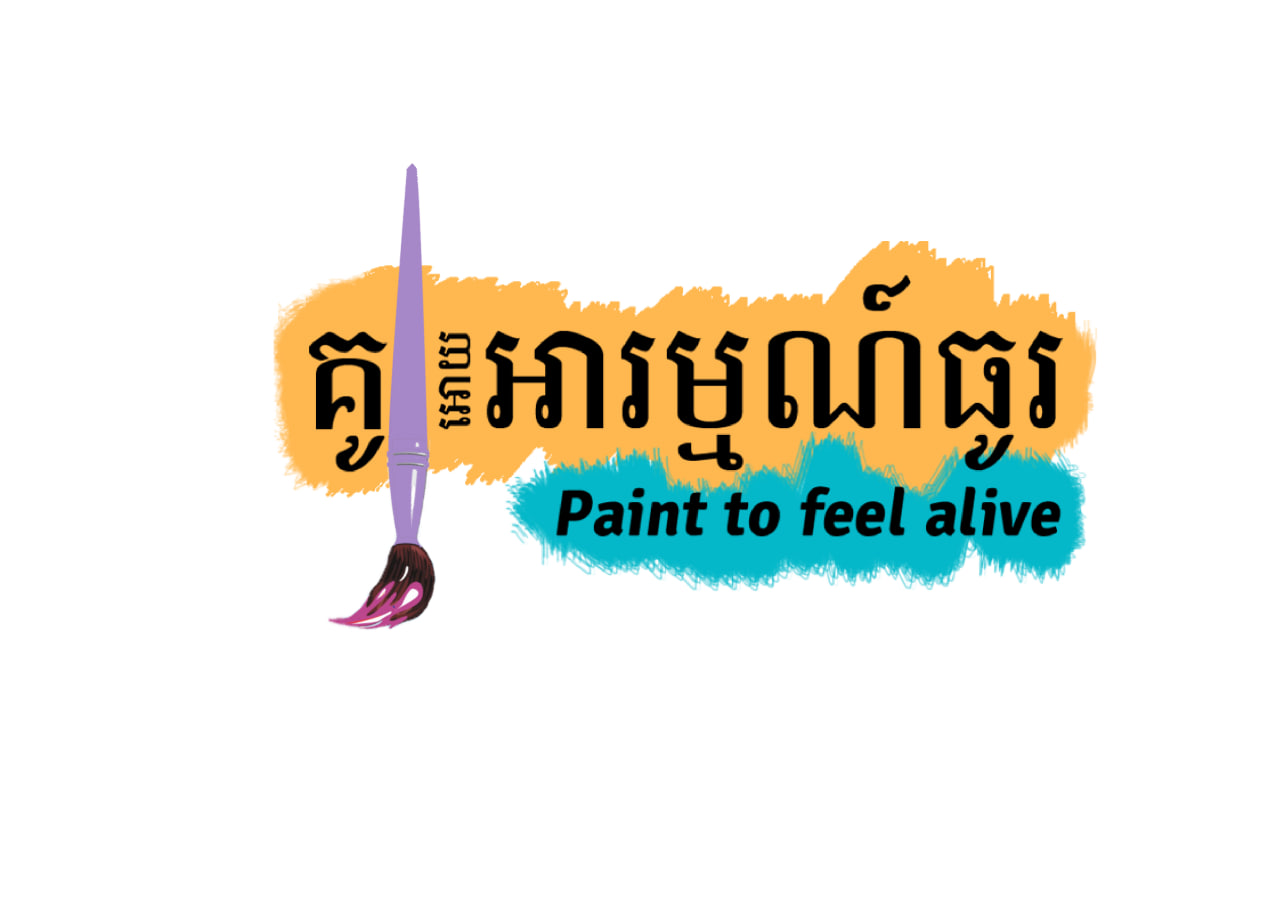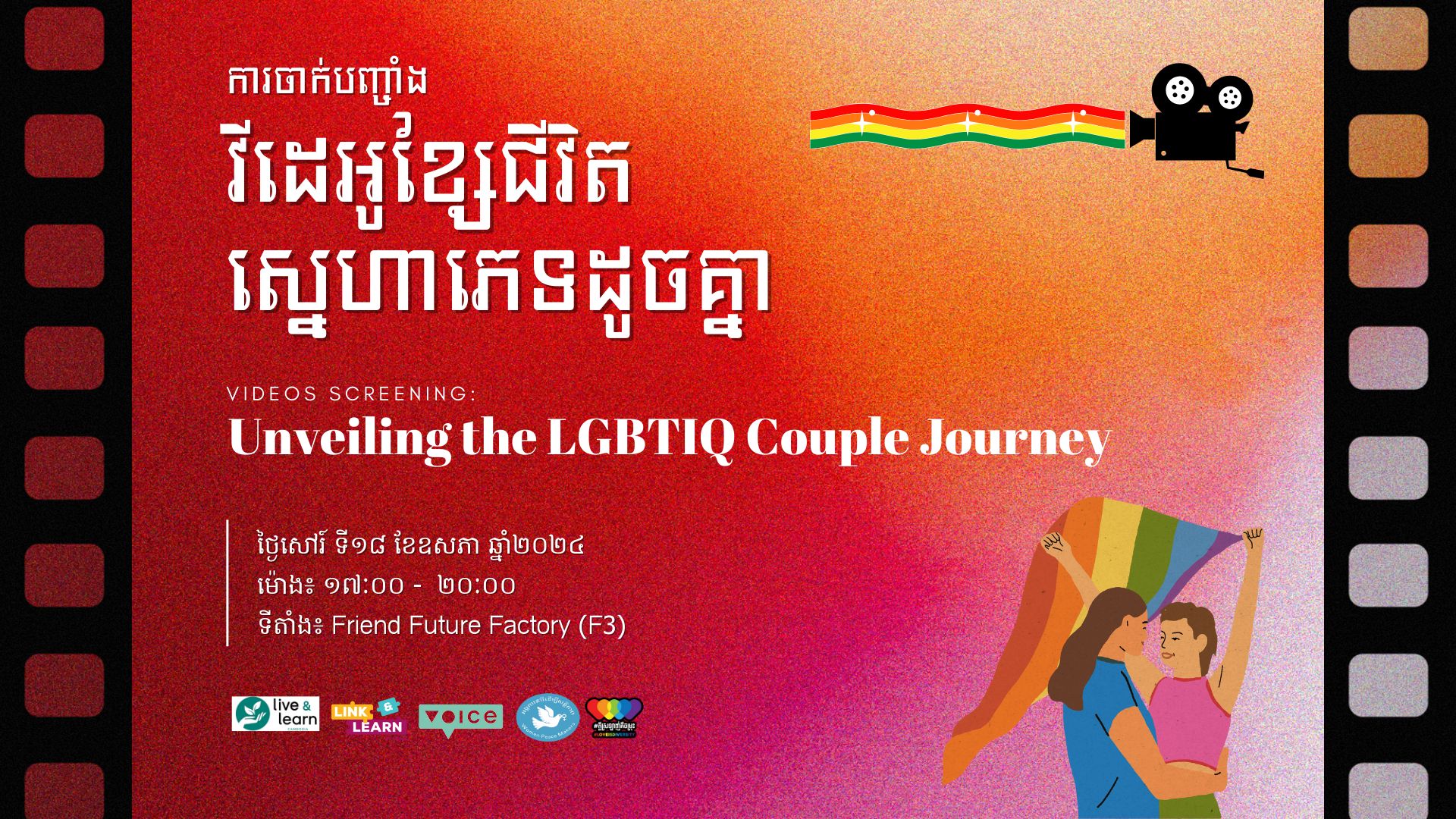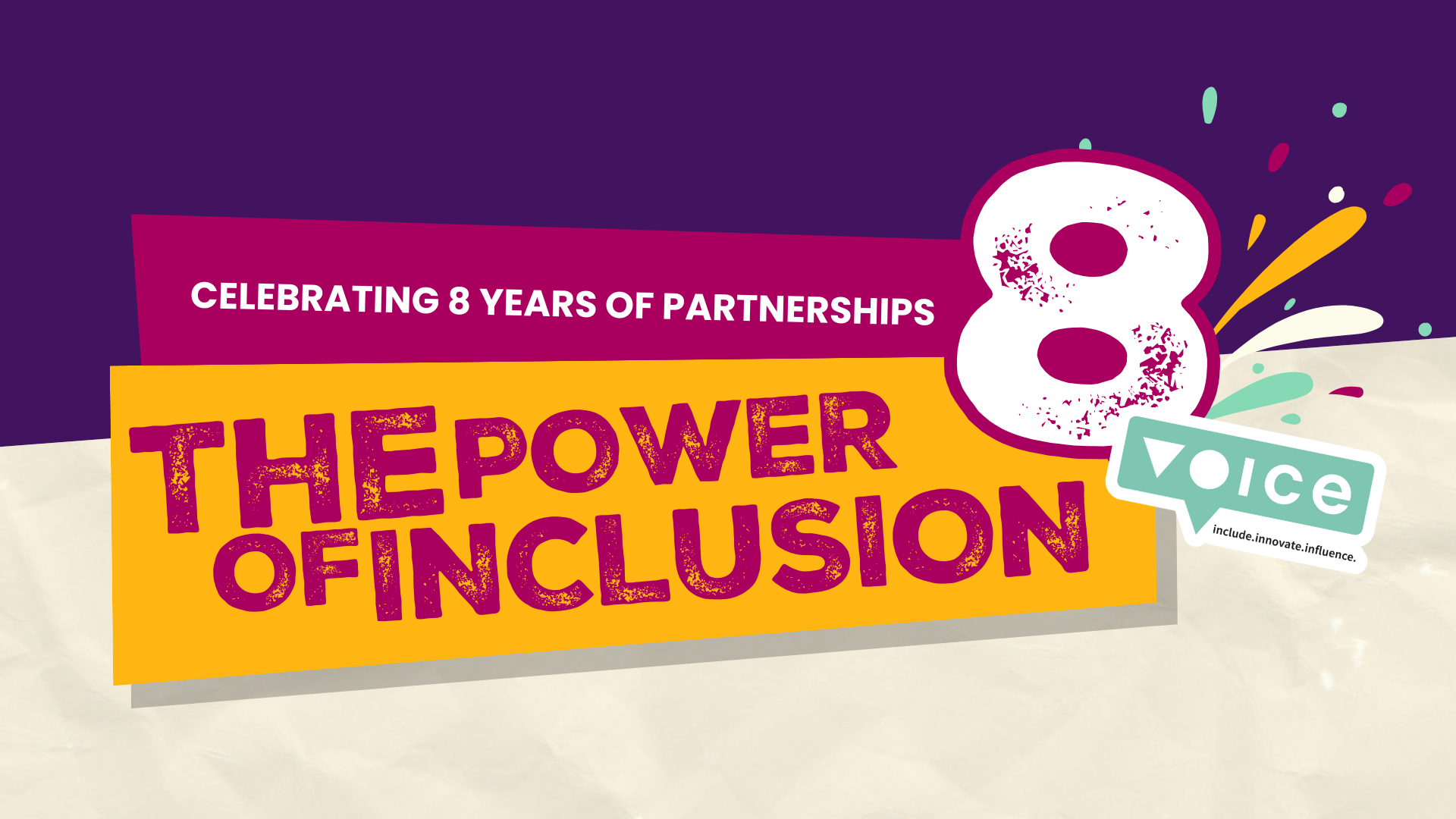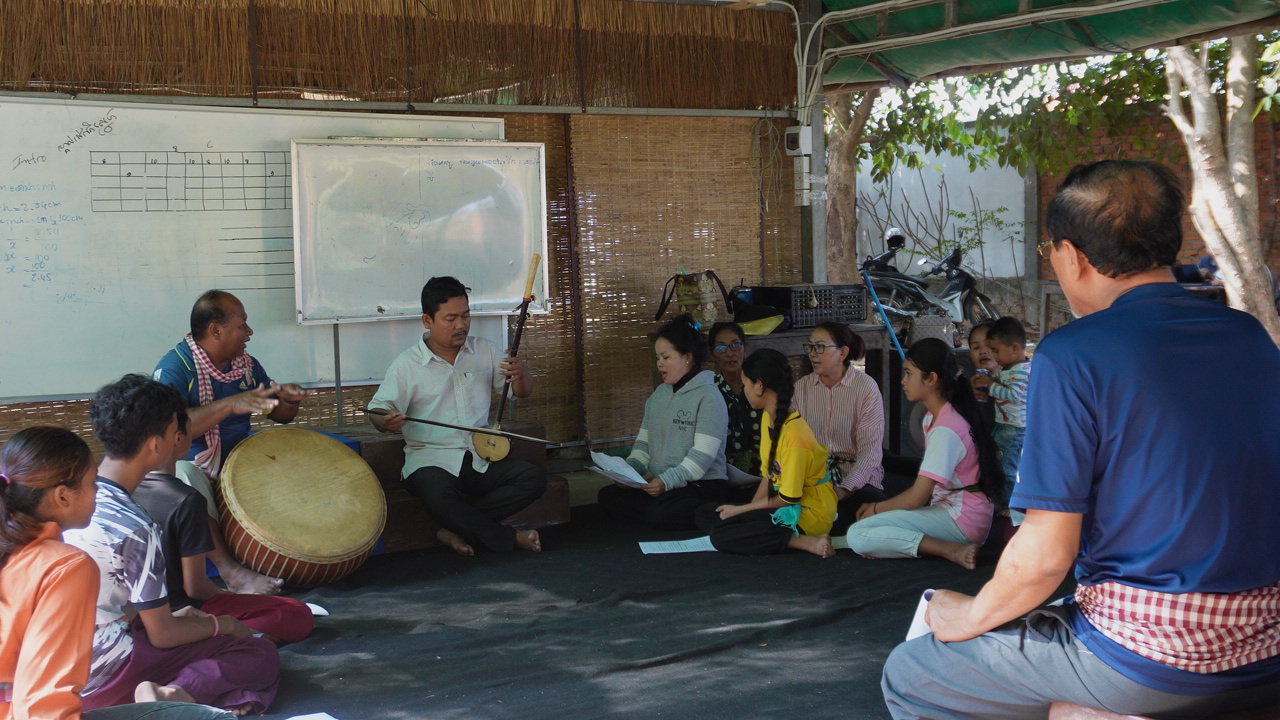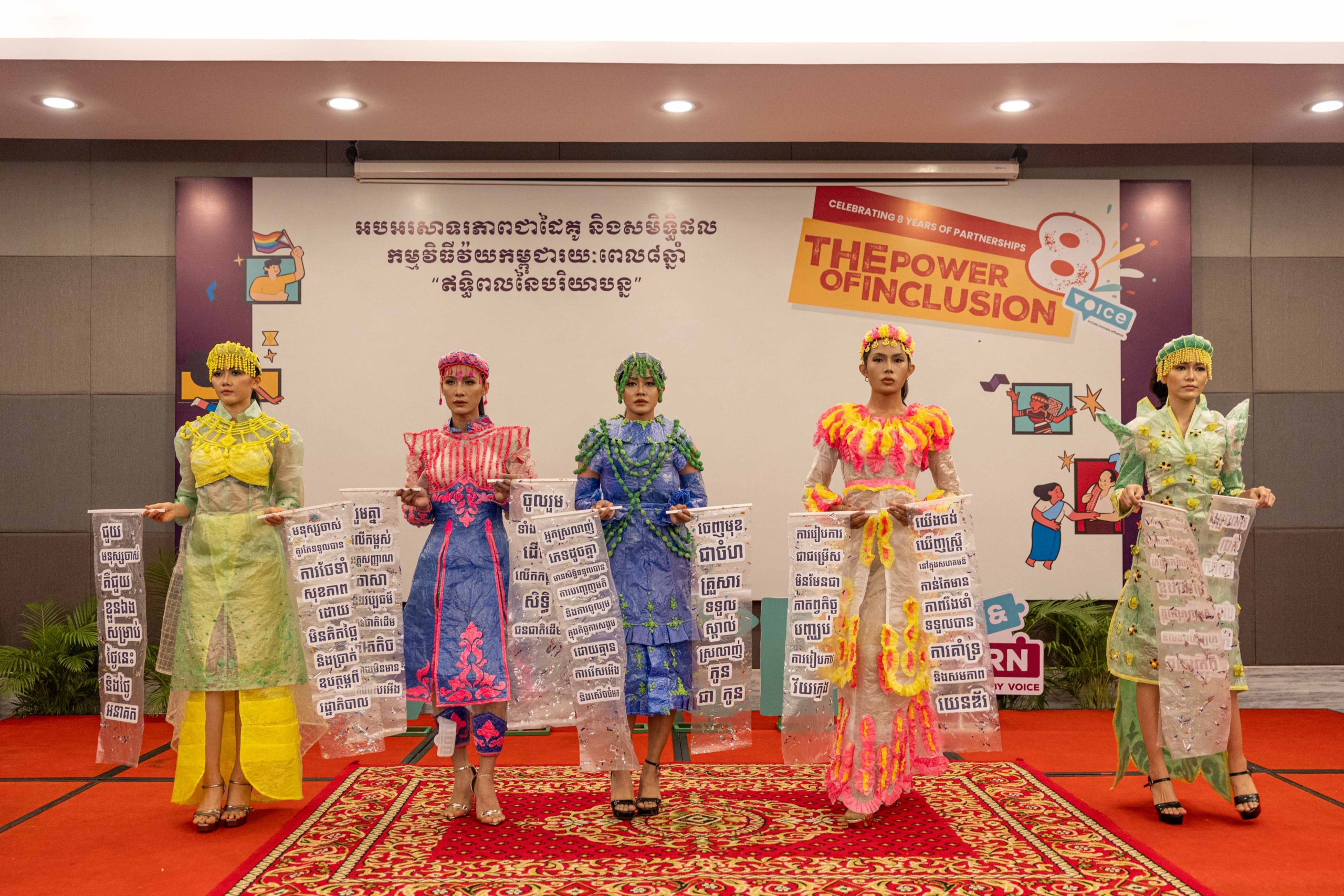Promoted Joint Learning Agendas and Advocacy by linking Innovative Platforms Amongst Grantees in Cambodia
By: SAM (Sam Eath) AOK, Linking & Learning Facilitation Team Cambodia
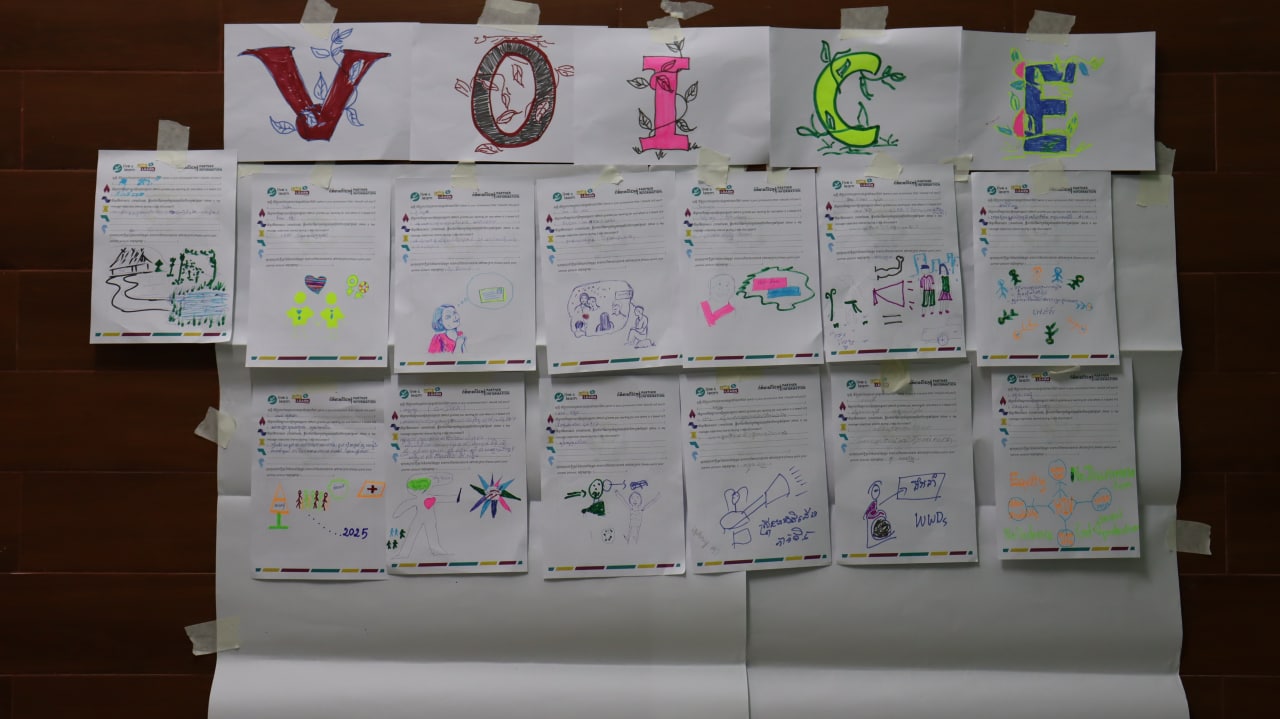
Live & Learn Cambodia (LLC), as Linking & Learning coordinator conducted two hybrid thematic workshops on women’s leadership on 28-29 April in Capital of Phnom Penh, and LGBTQI & Social Inclusion on 6-7 May 2022 in Battambang city with 16 grantees and representatives of 5 rightsholder groups. Both workshops integrated interactive learning agendas that linked with two grantees’ events by Women Peace Maker (WPM) and Safe Space Battambang (SSBTB).
The workshops aimed to strengthen capacities by applying different innovative approaches, advocacy platform sharing by strengthening collaborative engagement, communication and joint coordination through learning agendas. Strengthened and amplified five rightsholder groups’ voices and social inclusions by working together based on learning questionnaires and right-based approach (RBA).
Besides attending the workshops, all participants were invited to two other events: the public forum on “Voices from the Girls of Cambodian minority communities,” 29 April 2022 organized by WMP based in Phnom Penh. The event focused on research sharing on “Making The Space: Voices From The Girls of Cambodian Minority Communities”, panel dialogue on “Girls’ Voices and No One Left Behind/ Social Inclusion”. Another event on “Pride Month & IDAHOT” 7 May 2022 conducted by SSBTB focused on innovative fashion by using and designing rubbish as fashion clothes with different colors and panel dialogue on LGBTQI’s rights. The fashion shows performed by LGBTQI team.
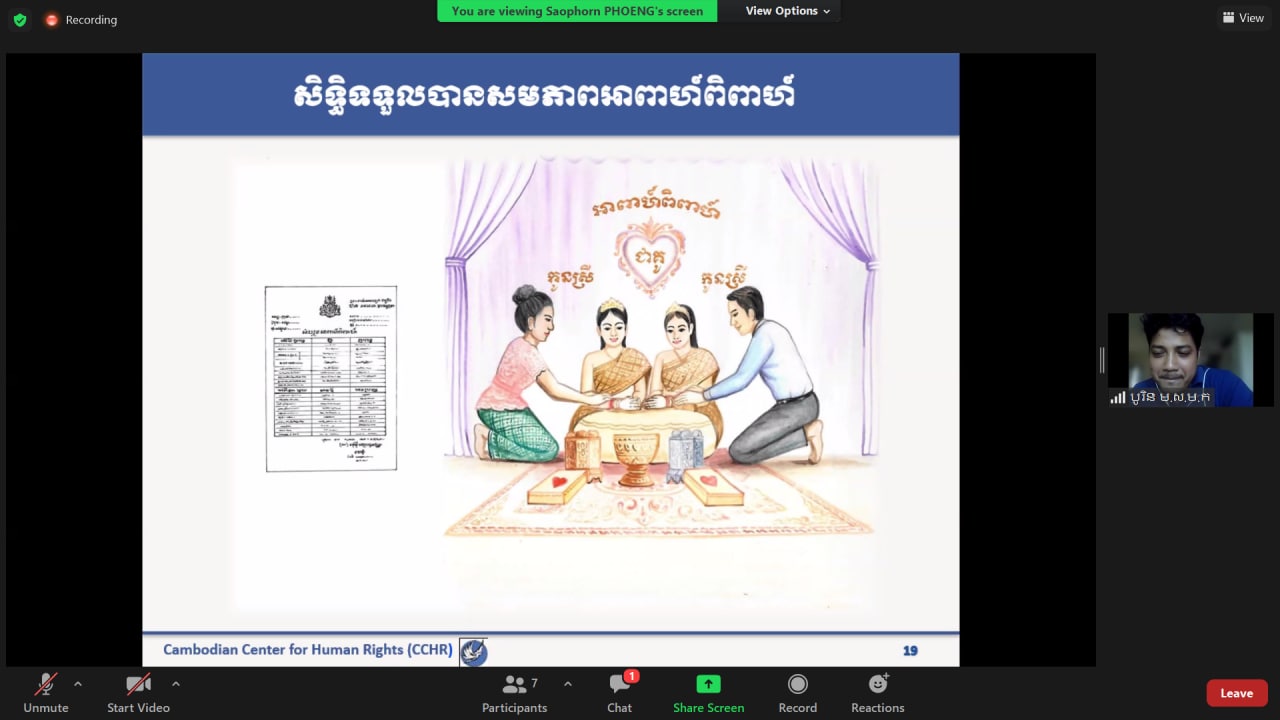
70 participants including 19 women, 1 GTM, 12 people with disabilities, 3 indigenous women, and 7 elderly people were from 16 grantees, and 15 representatives from 5 rightsholder groups. They had friendly spaces to learn, consult and share different concepts on women leadership, empowerment, LGBTQI+, rights based-approaches and social inclusion from expertise NGOs. 6 expertise honourable speakers were invited to engage two different workshops. They presented six topics.
- Women’s leadership presented by Ms. Nhean Phoungmaly, Director of Rachana Satrei (RS) organization website and chairwomen of NGO network based in Siem Reap province,
- Women empowerment presented by Ms. Chheun Tevy, project assistant from Women with Disabilities Leadership and Advocacy Network (WWD-LAN) Facebook https://www.facebook.com/wwdlan,
- Gender Based Violence in schools and communities, and Gender responsiveness presented by Mr. KHUN Bunlee, Managing Director of Khmer NGO for Education (KHEN) website,
▪ LGBTQI+ and SOGIESC presented by Thida Kuy, GTM, a founder of Love Is Diversity (LiD) https://www.facebook.com/loveisdiversity/ https://www.instagram.com/loveisdiversity/, YouTube, inclusion and
▪ Social protection Framework 2016-2025 presented by Mr. Mar Sophal, program Manager of The NGO FORUM on Cambodia website, Facebook,
▪ Right based-approaches and SOGIESC presented by Mr. Lim Borin, project coordinator of Cambodia Center for Human Rights (CCHR) www.facebook.com/cchrcambodia,
Many common technical terms of women empowerment, social inclusion, LGBTQI+, Community of Practice, (CoP) and learning questionnaires were promoted and shared in order to strengthen the grantees’ capacities working on policy changes and advocacy approaches.
An artistic form by peer-to-peer discussion was applied during the events amongst the grantees and rightsholder groups. Each participant was encouraged to draw a partner’s dream based on advocacy conceptual strategy, by mentioning what he or she wish to see a better change in Cambodia as well as in a global.
Ms. Um Amraroth, Executive Director of SAORI, said, “I got more understanding on women’s leadership, and from the presentation shared by the honorable speakers, I also learned some methods to motivate women to join consultative dialogues, especially women at sub-national levels.”
Ms. Chhoun Narom, project officer of ARV Users Association (AUA), said, “I appreciated seeing Linking & Learning conducting joint events amongst the grantees, and by inviting representatives of 5 rightsholder groups from each grantee to attend the thematic workshop. It was a good approach to link multiple communication, and learning from each other, particularly rightsholder groups and the grantees. Regarding this, a national dialogue and project knowledge product fair event should be conducted under a joint coordination by all grantees.”
Ms. Ou Vanda, 65-year-old woman, representative of the elderly from BTB province, said, “The elderly people living in Cambodia still face many challenges in accessing social protection, even though the government has been practicing a few mechanisms. Public service is a big concern for us all, while most elderly people have poor knowledge of health care. Moreover, I hope the government will make the general elderly people get harmonies of living standard and health care. We wish to get monthly fund support for individual elderly people from the government such as ASEAN countries.”
In addition, she added, “Equity card being provided to some elderly people by government is good practice in taking care of the elderly people especially vulnerable groups. The card is very important for the elderly people because they can access free health care from public health service.”
Mr. Chhon Sona from Men’s Health Social Service (MHSS), said, “Not only the elderly people are in challenges with social service, but our LGBTQI also looks very difficult to access social services. In addition, the thematic workshops were positive platforms where our rightsholder groups can learn, consult and share with each other on how to solve these concerns. Furthermore, we, as the grantees, should have a nationally joint event where we can amplify our voices by making consultative dialogues with government policy-makers and development partners as well as our respective rightsholder groups.”
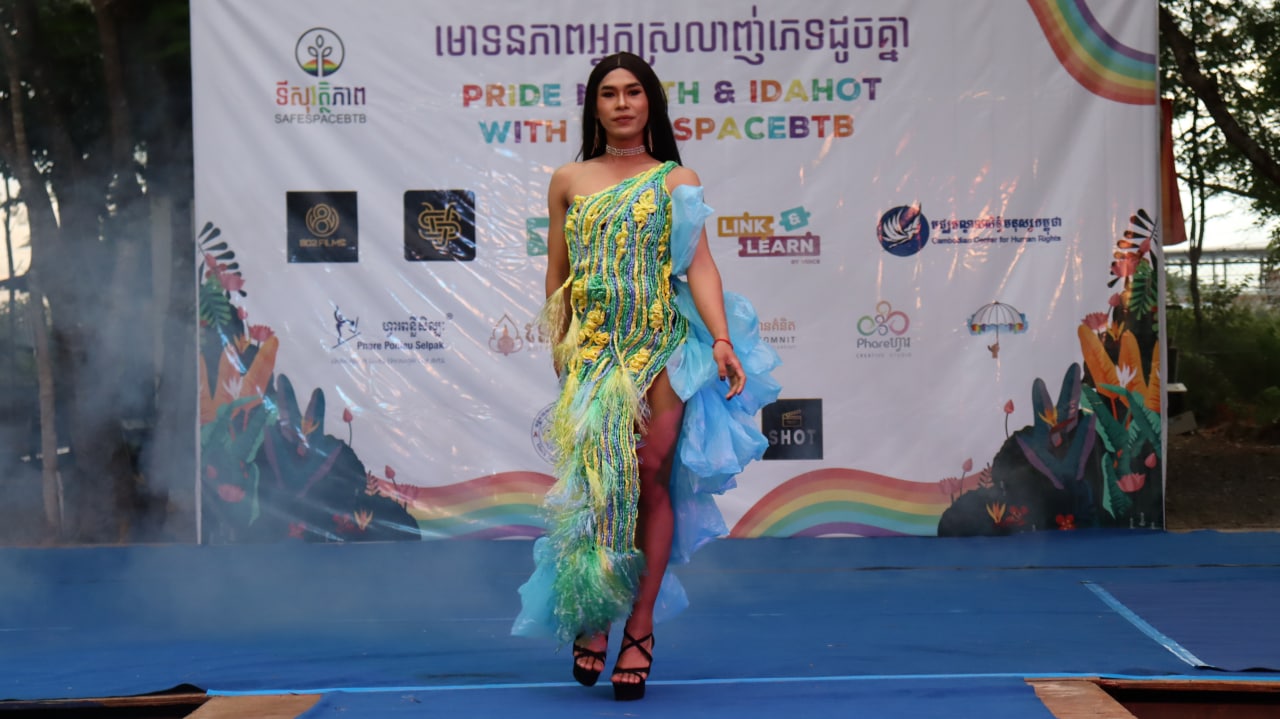
Ms. Le Sen, a Cham Muslim from Kampong Chhnang province, who is a Gender and Minorities Lead at Women Peace Makers and the lead author of Making the Space, said, “I met many obstacles working to create a platform amplifying voices of minority girls. I myself observed that young girls, especially girls living in remote areas still face many barriers to education and a secure participation in social movements.” Le added, “The research used Facilitative Listening Design (FLD) methodology to meet indigenous Bunong girls, Khmer Krom girls, Cham Muslim girls and ethnic Vietnamese in order to hear the stories directly from minority girls across Cambodia. We met a total of 343 participants using mixed-methods research including FLD, survey, and focus group discussion to complement our research findings for a solid evidence-based advocacy.”
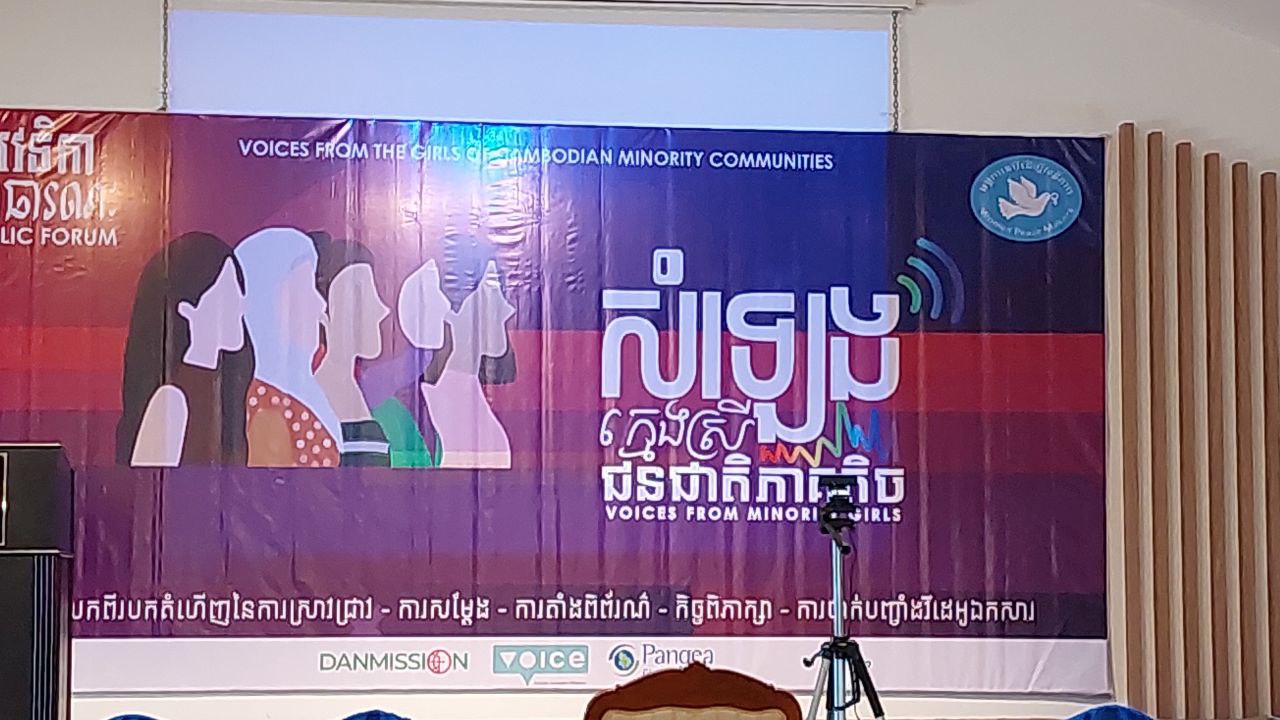
According to the research of page 171 illustrating a storytelling of Cham Muslim girl, “A 15-year-old traditionalist Cham student from Kampong Chhnang shared her personal story with the Listeners during their FLD conversation. She felt that girls in her community had less opportunities than boys and she struggled to continue studying in school. She noted that Cham culture was much stricter than Khmer culture and felt that dress was quite different with many more rules for Cham girls. She was nevertheless very proud to be Cham and said, “I love who I am and what I have.”
Ms. Kasoul Phalla, indigenous woman called Bunong from Ratanakiri province, said, “It was the first time to join such an event in my life. I never left my hometown, and I feel afraid of expressing ideas amongst many people. I really appreciated seeing all participants trying to encourage me to speak out and share what I want, even though my speaking was not clear in Khmer pronunciation. During my 2-day participation, I have learnt a lot of things and knowledge, in particular women rights and roles in community development and leadership shared by speakers and participants. I started to build a good start-up of communication, public talks and discussion. Furthermore, I also learnt different forms of discriminations related to indigenous people, women and people with disabilities in a society.”

